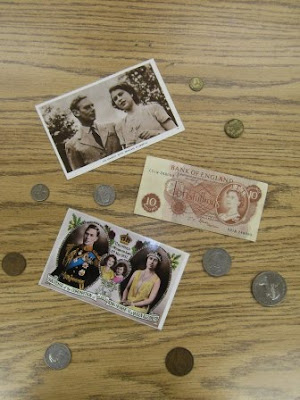Games
‘There was a strong tradition of throwing horseshoes. Nearly every area had their own pole and supply of horseshoes, such as Pluck, Manor, Labadish. There were keenly fought competitions; teams and individuals took it as seriously as modern day golfers. We were able to do it because there were two or three smithies in the area and all their discarded horseshoes were thrown in a pile in the corner. I used to collect from Jimmy flood, all different types of shoes. Whoever scored 21 points won. They had a different score for each horseshoe. A horseshoe around the pole meant three points, if another shoe landed on top of yours, your points were canceled. A horseshoe standing up against the pole was two points. Nearest to the pole was one point. It would be about 20-24 feet distance. It was a summer pastime engaged by both young and old. To my mind it was a great example of a rural pastime that didn’t cost any money. It was a social gathering, a bit like the handball at Labadish, you would have 30-40 people gathering for that.’ – Leonard Roarty
There was no football during the war years, so kids used to blow up pigs bladders and use them!
Tossing the sheaf over the telegraph wire was very popular. You’d throw it with a pitchfork over the wire. Sometimes on sport days you’d use a high bar and it would be raised time and time again.
School
‘Everybody brought turf to the fire. You would have brought it up from home. It was brought from west Donegal or Inishowen and bartered for straw or turnip. The principal in Balleeghan travelled from Dunfanaghy and she used to fall asleep while students were reading she was so tired. When she was sleeping everyone would stop and she’d wake and shout next with a jump!’ – Billy McKinley
Bobby Nicholl was known as the memory man. He used to come around the schools and ask the children about dates and he could tell them everything! He was even on t.v at one time, he was from Strabane.
‘Before Myxomatosis rabbits were a great source of food. There was no fat on them. My father was a crack shot with a .22, and he’d go out hunting rabbits all the time.’ – Leonard Roarty
‘I loved the poundies (potatoes) with butter. You had to have the scallions too add flavour, new fresh scallions. It was as good as steak.’ – Ena McClean
‘I remember Johnny Fox was a station master in Letterkenny. He was from Raphoe. He was in the first World War, a very tall man. He was out waiting for us every morning because we were travelling in the rail bus. One day he wasn’t there and I left the bike outside his door. I found out that evening he was dead.’ – Leonard Roarty
Food
‘Barrels of salted herring were brought in during lent, then you had ling which was dried fish and hung from the roof. It was like leather, you could’ve sewed your shoe with it. They used to fish herring in the Swilly. At one time it was a very big herring river. The locals thought that once there was blood spilled over it they would leave. That must have happened at some point because there’s none there now.’ - Leonard Roarty and Billy McKinley
‘Goose we used to always have at Christmas then it was changed to turkey. You got stuff at Christmas you never got for the rest of the year. I worked the Corkey co-op over Christmas. Everybody wanted a cake. If someone didn’t get a cake that was a customer lost.’ – Leonard Roarty
Miscellaneous
‘There was a lot of ceíling in Glenmaquinn. It was mainly visiting houses, also called raking. Cards were played too. ‘ – Billy Davis
‘A man over the road hadn’t a stitch of clothes to wear when he was only seven. One day his mother bought him a hat in Letterkenny, and from then on he was able to look out the window.’ – Liam Mc Laughlin
‘Urney chocolate was very popular with my grandmother in Glasgow. I remember the groceries used to come in horse drawn wagons with tarpaulin covering and you’d put your head under it while looking for things to buy. My grandmother always looked for Urney chocolate.’ Maureen Shiels
Contributors:
Billy Davis
Paul McLaughlin
Michael Meehan
Elma McClean
Kevin Cunnane
Tommy Shiels
Maureen Shiels
Paul Gallagher
Billy McKinley
Leonard Roarty
Ena McClean
Liam McLoughlin
Ann Carrol
Liam Holmes
Virginia McLoone











